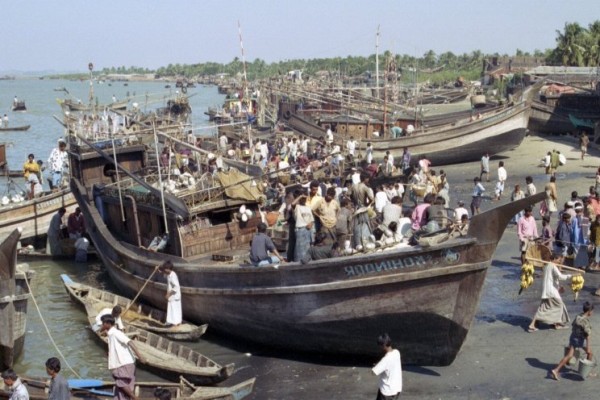
India and Bangladesh will repatriate nearly 200 fishermen who inadvertently crossed maritime boundaries while fishing.
Scheduled for January 5, 2025, this exchange will involve 95 Indian fishermen and 90 Bangladeshi fishermen, along with their fishing vessels. The repatriation after intense discussions between the two sides underscores both nations’ commitment to addressing livelihood and humanitarian concerns, even amidst ongoing diplomatic tensions.
The operation will see the respective Coast Guards facilitate the handover at the International Maritime Boundary Line in the Bay of Bengal. Indian fishermen detained in Bangladesh’s Bagerhat and Patuakhali districts were released on January 2 to the Bangladeshi Coast Guard, while Bangladeshi fishermen held in Paradeep, Odisha, and Kakdwip, West Bengal, will be handed over in parallel.
The exchange also includes six Indian fishing trawlers and two Bangladeshi vessels, marking an effort to return livelihoods and equipment critical for the fishing communities. Bangladeshi fishermen are expected to reach Chattogram by January 6, concluding this coordinated repatriation.
India’s Ministry of External Affairs (MEA) and Bangladesh’s Foreign Ministry have both emphasized that the operation reflects a shared commitment to the safety and welfare of fishing communities. These incidents often arise from inadvertent breaches of the maritime boundary, underscoring the need for regular cooperation between the neighbours.
A statement from the MEA read: “The Government of India attaches the highest importance to the safety, security, and welfare of its fishermen. The mutual exchange of fishermen and vessels reflects our shared humanitarian priorities.”
Bangladesh echoed these sentiments, crediting the successful coordination to joint efforts by its foreign, home, fisheries, and livestock ministries, as well as law enforcement and local authorities.
The detained Indian fishermen were apprehended by Bangladeshi authorities during October and November 2024 when six Indian trawlers crossed into Bangladesh waters. Similarly, Bangladeshi fishermen and their vessels were detained by the Indian Coast Guard in December 2024 for allegedly fishing illegally in Indian waters.
Additionally, 12 Bangladeshi fishermen detained by Indian authorities in September 2024 have already been released in a separate gesture of goodwill. Their boat reportedly capsized in Indian waters, leading to their arrest under the Foreigners Act.
The repatriation effort takes place against a backdrop of strained diplomatic ties.
The interim administration in Bangladesh Dhaka led by Mohammad Yunus has formally requested the extradition of former Prime Minister Sheikh Hasina, who sought refuge in India on August 5, 2024 following political unrest. Meanwhile, India has expressed concern over human rights issues in Bangladesh, including the arrest and denied bail of a monk, Chinmoy Krishna Das, and alleged atrocities against minorities.
In a career spanning three decades and counting, Ramananda (Ram to his friends) has been the foreign editor of The Telegraph, Outlook Magazine and the New Indian Express. He helped set up rediff.com’s editorial operations in San Jose and New York, helmed sify.com, and was the founder editor of India.com.
His work has featured in national and international publications like the Al Jazeera Centre for Studies, Global Times and Ashahi Shimbun. But his one constant over all these years, he says, has been the attempt to understand rising India’s place in the world.
He can rustle up a mean salad, his oil-less pepper chicken is to die for, and all it takes is some beer and rhythm and blues to rock his soul.
Talk to him about foreign and strategic affairs, media, South Asia, China, and of course India.




